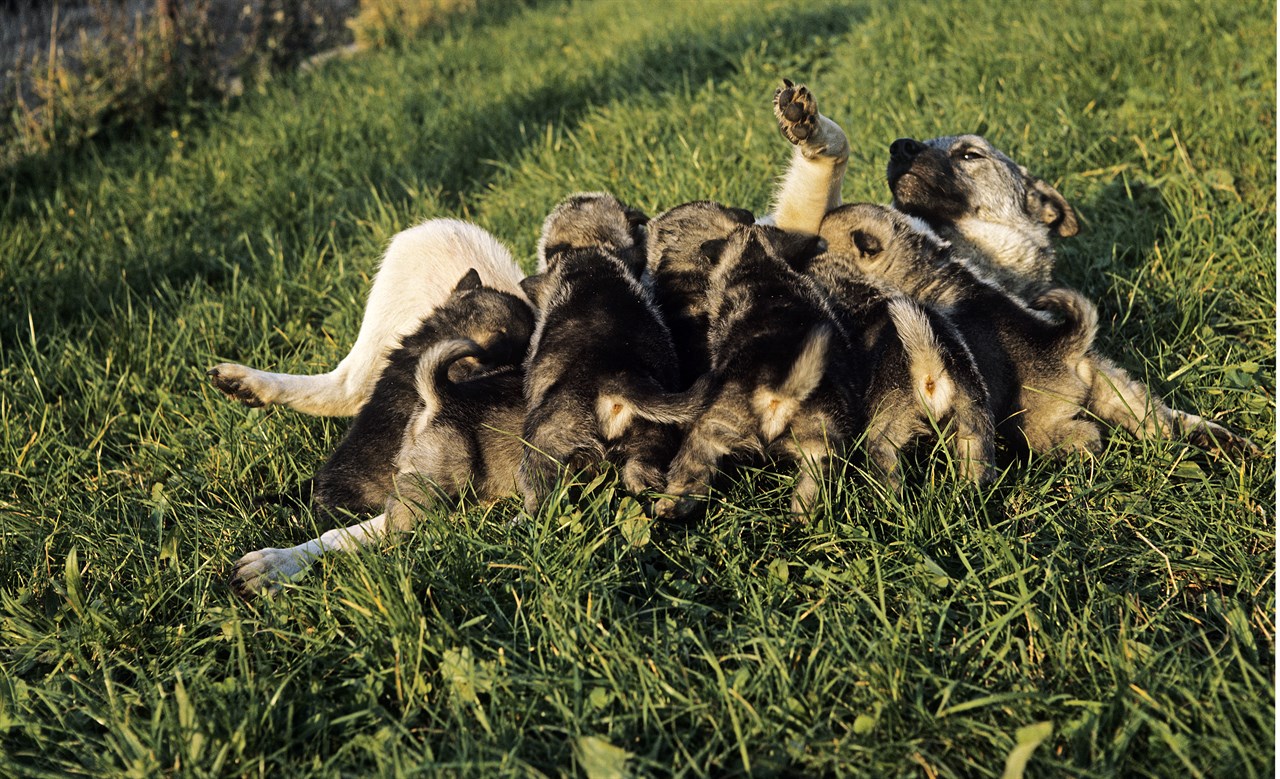Norwegian Elkhound Common Health Issues

The Norwegian Elkhound is generally a healthy and robust breed, but like all dogs, they can be prone to specific health issues. Responsible breeding practises and regular veterinary care can help minimise the risk of these conditions. Here are some of the common health issues associated with Norwegian Elkhounds:
Hip Dysplasia
Hip dysplasia is a genetic condition that affects the hip joint. It occurs when the hip joint doesn't develop properly, leading to issues with movement and pain. Elkhounds can be susceptible to hip dysplasia, and it's often hereditary. Maintaining a healthy weight and providing joint supplements can help manage the condition.
Progressive Retinal Atrophy (PRA)
PRA is a group of inherited eye disorders that can lead to blindness. It typically progresses slowly, and affected dogs may adapt well to their loss of vision. Responsible breeders screen for PRA to reduce the risk of passing it on to puppies.
Hypothyroidism
Hypothyroidism occurs when the thyroid gland doesn't produce enough hormones, leading to a range of health issues, including weight gain, lethargy, and skin problems. It is manageable with medication, and affected Elkhounds can lead normal lives with proper treatment.
Fanconi Syndrome
Fanconi syndrome is a kidney disorder that can affect Elkhounds. It leads to the improper processing of nutrients and can cause increased thirst, excessive urination, and weight loss. Treatment typically involves dietary management and medications to support kidney function.
Elbow Dysplasia
Similar to hip dysplasia, elbow dysplasia is a developmental condition affecting the elbow joint. It can cause lameness, pain, and joint issues. Surgical intervention may be necessary in severe cases.
Bloat (Gastric Torsion)
Bloat is a potentially life-threatening condition that affects some deep-chested breeds, including the Norwegian Elkhound. It involves the stomach twisting, leading to a blockage of blood flow and gas buildup. Immediate veterinary attention is crucial in cases of bloat.
Skin Allergies and Dermatitis
Some Elkhounds may be prone to skin allergies and dermatitis, which can cause itching, hair loss, and skin infections. Identifying and managing the allergen or irritant is essential for alleviating these issues.
Ear Infections
Elkhounds have ears that are prone to infections due to their shape and hair in the ear canals. Regular ear cleaning and proper hygiene can help prevent ear infections.
Cancer
Cancer can affect dogs of any breed, including Norwegian Elkhounds. Common types of cancer in this breed include lymphoma and mast cell tumours. Early detection and treatment are crucial for the best possible outcomes.
Obesity
Due to their love of food and their hearty appetite, Norwegian Elkhounds can be prone to obesity if their diet and exercise are not well-managed. Obesity can exacerbate other health issues and reduce their overall quality of life.
Regular check-ups with a veterinarian, responsible breeding practises, a balanced diet, and maintaining a healthy weight can help mitigate the risk of these common health issues. Early detection and prompt treatment are key to managing any health concerns that may arise in Norwegian Elkhounds.
Norwegian Elkhound puppies for sale
- Find Norwegian Elkhound puppies for sale in ACT
- Find Norwegian Elkhound puppies for sale in NSW
- Find Norwegian Elkhound puppies for sale in NT
- Find Norwegian Elkhound puppies for sale in QLD
- Find Norwegian Elkhound puppies for sale in SA
- Find Norwegian Elkhound puppies for sale in TAS
- Find Norwegian Elkhound puppies for sale in VIC
- Find Norwegian Elkhound puppies for sale in WA